Performance
To get an idea of how quick Kingston's HyperX MAX 3.0 is, we test the drive by connecting it to both the USB 2.0 and USB 3.0 ports found on our ASUS P6X58D Premium motherboard.
We expect the USB 3.0 speeds to be impressive, but to see how well it compares, we'll also provide benchmark numbers for a 64GB USB 3.0 Flash drive (Kingston's Data Traveler Ultimate) and a 160GB USB 2.0 hard disk (Freecom's Mobile Drive XXS).
All drives are formatted to the NTFS file system before benchmarking, and we run a series of six tests, all of which are detailed below.
Synthetic benchmarks - AS SSD
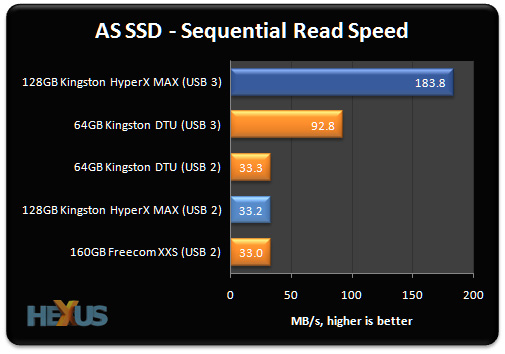
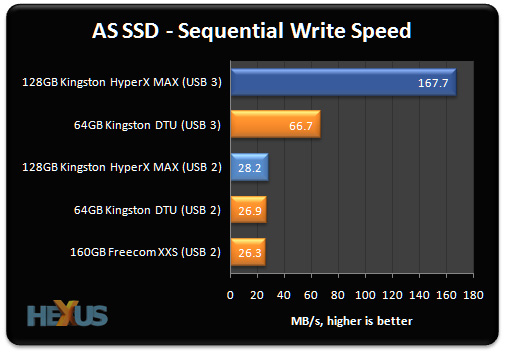
The freeware AS SSD utility examines each drive's peak sequential read and write speeds, and, as expected, Kingston's HyperX MAX external SSD gets off to a flier.
Read and write speeds are excellent (the latter is actually ahead of Kingston's claims), and the drive is on average 5.7x quicker when hooked up to a SuperSpeed USB 3.0 connection.
The interface clearly makes all the difference. Despite the use of quick flash memory, neither the 64GB Data Traveler Ultimate or the 128GB Kingston HyperX MAX USB are notably quicker than the Freecom hard-disk when connected via USB 2.0 - the bandwidth limitations of the previous-generation interface limits the drives to read speeds of roughly 33MB/s.
Real-world tests
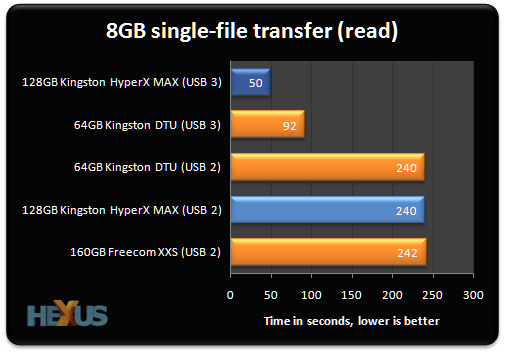
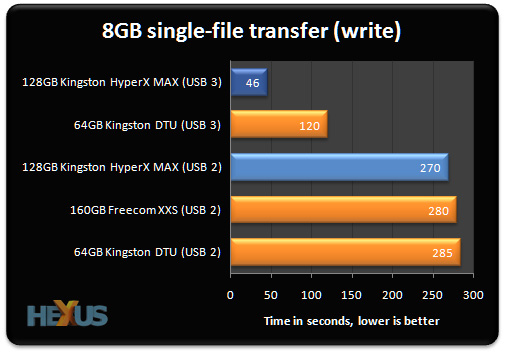
To see how well the drive handles large file transfers, we move an 8GB file to-and-fro the drive a couple of times and record the average time taken.
Once again, the Kingston HyperX MAX 3.0 shows stunning read and write performance when hooked up to a USB 3.0 port. We averaged a speed of 160MB/s when reading from the drive, whilst moving an 8GB file the opposite way took just 46 seconds - almost four minutes less than the 160GB Freecom USB 2.0 hard disk.
But not all files are huge, so we also test a mixed assortment by moving a 5.5GB directory containing 342 folders and 5,550 mixed-size files.
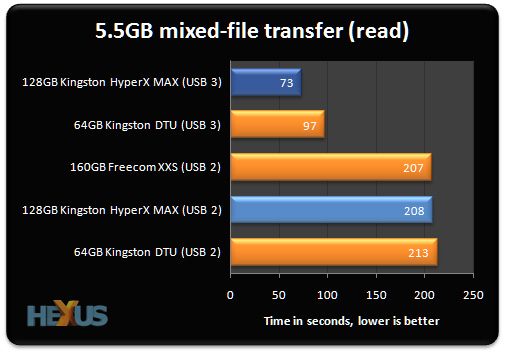
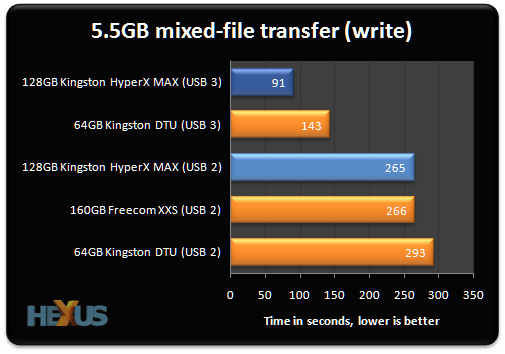
The benefits of an external SSD hooked up via USB 3.0 are obvious, and the Kingston HyperX MAX 3.0 is undoubtedly the quickest portable storage solution we've ever tested.
Moving the 5.5GB directory from the drive takes just over a minute (averaging 75MB/s) and is almost three times quicker than the traditional hard disk used in our benchmarks.
But while performance is quick, there's still room to manoeuvre. Kingston's HyperX MAX 3.0 doesn't saturate the bandwidth available to the SuperSpeed bus, and we suspect competitors will be eager to flood the market with external drives based on quicker SSD controllers.









